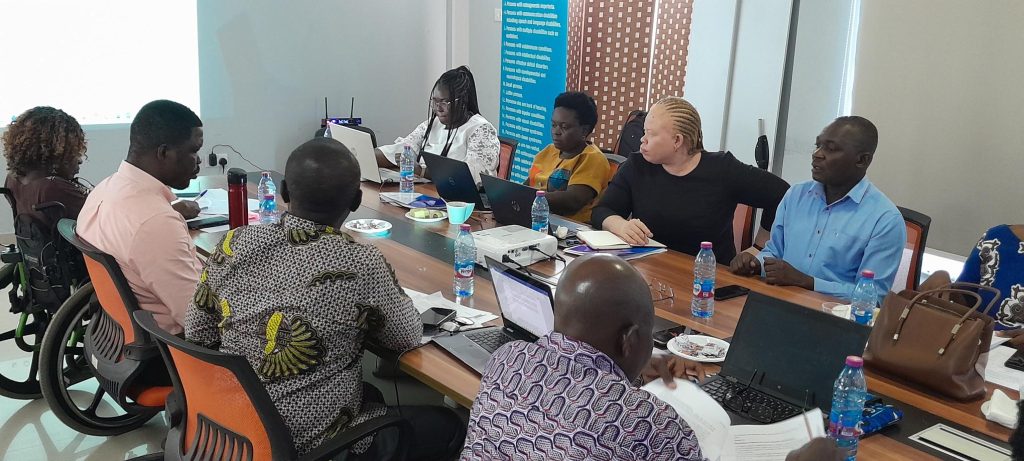By Eunice Hilda A. Mensah
Accra, Nov. 01, GNA – Dr Yvonne Brew, a Disability Paediatrician, Greater Accra Regional Hospital, says having a child with disability is not a spiritual punishment.
“Disability is not a curse,” she stressed, saying everyone could get a form of disability or give birth to a child with disability, and that statistics had shown that almost 10 per cent of the population would have a form of disability.
“When a mother has a child with disability, the whole community should come together to help the child. Disability is not a curse. It is a health condition that could be experienced by anyone,” she said.
Dr Brew said this in an interview with the Ghana News Agency when the National Council on Persons with Disability (PWDs) held the 19th and 20th Technical Committee Meeting in Accra to review the Persons With Disability Act 2006, assess its progress and ensure input from stakeholders reflected the intent and welfare of PWDs.
“In this new incoming law, there are a lot of things for children with disability. So far, things have gone on well and I am happy about it,” she added.
Speaking about the refusal of public and private schools to admit children with disability, Dr Brew admonished government to intervene to give teachers specialised training and ensure that there was a policy intervention to compel schools to provide basic amenities to cater for children with special needs.
“These schools would need specialised or trained teachers, ramps, special rooms, chairs, and attention for such children. It should be a full government package.

“The Bill when passed will, therefore, enable children with disability to be identified and given quality health, education and social services to enable them meet their potentials,” she said.
The Persons with Disability Bill 2022 in the review of the PWDs Act, 2006 (Act 715), will upgrade the Council into a Commission to empower it for the general wellbeing of PWDs.
Ms Esther Akua Gyamfi, the Executive Secretary of the Council, said the Commission would then be charged to coordinate disability matters for systemic inclusion and develop strategic intervention, guidelines and policies to enable PWDs to participate in national development.
The Commission would also be tasked to collaborate with relevant authorities to provide equal opportunities for PWDs with respect to education, employment, health, sports, recreation, sports, social services, civil and political rights among others.
It would also provide accreditation for disabilities related courses of study in collaboration with the relevant authority, issue Identity Cards to PWDs, and collaborate with the Statistical Service for accurate data on PWDs for planning and budgeting.
The Commission will also foster collaboration among local and international organisations that help PWDs, promote studies and research on issues with disabilities and conduct accessibility audit on places of service to which the public has access.
The Executive Secretary said the Technical Committee Meeting would review the schedule requirement for subjecting a PWD to a medical or scientific research or sterilisation and review the provisions on children, youth and women with disability.
Professor Samuel Kaba Akoriyea, the Chairperson of the Technical Committee, expressed optimism that the entire review meetings and subsequent steps would reach a logical conclusion for the good of all PWDs in the country.
The Technical Committee include representatives from the Ministries of Gender, Children and Social Protection, Local Government, Department of Social Welfare, Ghana Health Service, Commission on Human Rights and Administrative Justice, the Judicial Service, Ghana Federation of Disability Organisations, the Special Mothers Project, Mental Health Authority, and relevant Departments in Universities.
GNA